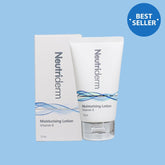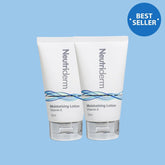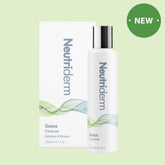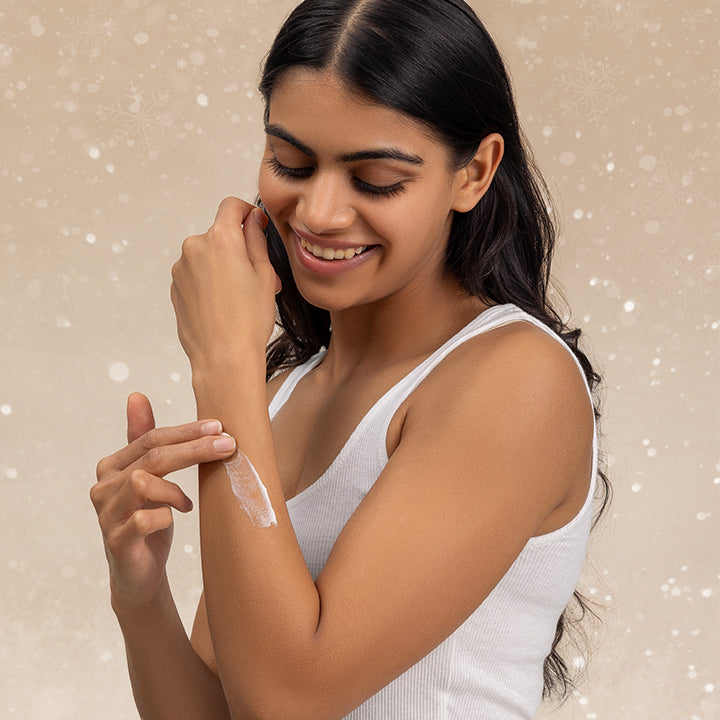Winter, with its biting cold and crisp air, paints a picturesque landscape but can be a harsh reality for our skin. As temperatures plummet and humidity levels drop, our skin, which relies on moisture to stay supple and healthy, faces a significant challenge. The cold air acts as a drying agent, stripping away the skin's natural oils and leaving it feeling parched, rough, and vulnerable to irritation. Winter temperatures can be harsh on the skin. The cold air reduces blood flow to the skin's surface, making it difficult to retain moisture. This can lead to dryness, flakiness, and a weakened skin barrier. The weakened barrier makes the skin more susceptible to irritants and allergens, which can cause redness and sensitivity.
The Nuances of Winter Skin: Beyond Dryness
As winter's chill wreaks havoc on our skin, leaving it feeling dry, parched, and often, more sensitive than usual.
Beyond the obvious dryness, several nuances of winter skin require special attention.
1. Increased Sensitivity
The cold weather can disrupt the skin's protective barrier, making it more susceptible to irritants and allergens. This increased sensitivity can lead to redness, itching, and even allergic reactions to products that were previously tolerated.
2. Dullness
As temperatures drop, blood flow to the skin decreases, resulting in a lackluster complexion. Reduced blood flow means less oxygen and nutrients are delivered to the skin cells, leading to a dull and lifeless appearance.
3. Exacerbated Fine Lines and Wrinkles
Dry skin can make existing fine lines and wrinkles appear more pronounced. The lack of moisture can cause the skin to lose its elasticity and plumpness, making wrinkles more visible.
4. Chapped Lips
The delicate skin on the lips is particularly vulnerable to the drying effects of winter. Cold weather, combined with the habit of licking or biting lips, can lead to chapped, cracked, and painful lips.
5. Static Electricity
Dry skin can also contribute to increased static electricity. This can cause discomfort, irritation, and even spark small electrical discharges.
Active Ingredients for Winter Skincare

Understanding these nuances of winter skin is essential for developing an effective skincare routine that addresses the specific needs of your skin during the colder months.
1. Vitamin E
Vitamin E is a powerful antioxidant that plays a crucial role in maintaining healthy skin. It helps to protect the skin from environmental damage, such as pollution and UV radiation, which can lead to premature aging and skin damage. Additionally, vitamin E acts as a natural moisturizer, helping to retain moisture and prevent dryness.
Incorporating vitamin E into your skincare routine can help to improve skin tone, texture, and elasticity. It can also help to reduce the appearance of scars and fine lines. Neutriderm Moisturising Lotion features a unique type of vitamin E that is particularly effective in repairing and rejuvenating the skin. This special form of vitamin E, combined with the lotion's other hydrating ingredients, provides a powerful solution for those seeking to improve their skin's health and appearance.
2. Sodium PCA
Sodium PCA is a naturally occurring amino acid that is essential for maintaining healthy skin. It acts as a humectant, drawing moisture into the skin and helping to keep it hydrated. This is particularly important during the winter months when the skin is more prone to dryness.
Using skincare products containing sodium PCA can help to improve skin hydration, plumpness, and overall appearance. It can also help to reduce the appearance of fine lines and wrinkles. Sodium PCA is often found in moisturizers, serums, and toners.
3. Colloidal Oatmeal
Colloidal oatmeal is a soothing ingredient that can help to relieve itchiness, redness, and inflammation. It has anti-inflammatory properties that can calm irritated skin and reduce dryness. This makes it ideal for those with sensitive or eczema-prone skin.
Using skincare products containing colloidal oatmeal can help to soothe and protect the skin, especially during flare-ups of skin conditions. It can also help to improve skin hydration and reduce the appearance of redness. Colloidal oatmeal is often found in moisturisers, cleansers, and bath products.
Designed to cleanse your skin without stripping away essential oils and moisture, which can be particularly important during the cold, dry months, Dermavive Hydra Cleanser proves to be a gentle, soap-free cleanser that uses natural colloidal oatmeal to hydrate and soothe dry skin, making it an ideal choice for winter skincare.
4. Glycerin
Glycerin is a versatile humectant that can help to improve skin hydration. It draws moisture into the skin, leaving it feeling soft and supple. Glycerin is also a natural emollient, which means it can help to soften and smooth the skin.
Using skincare products containing glycerin can help to improve skin hydration, reduce dryness, and enhance the appearance of the skin. Glycerin is often found in moisturisers, serums, and cleansers.
One of the best creams for Winters is hands down Dermavive Dry Skin Cream. It is dermatologist-recommended and is a therapeutic cream that helps soothe and hydrate dry skin. It contains a unique blend of ingredients, including colloidal oatmeal, sodium PCA, vitamin E, and jojoba oil. These ingredients work together to balance the skin's pH levels, unclog pores, and protect the skin from harmful substances. The cream can help reduce inflammation, itching, and irritation associated with dry skin conditions.
Winter Lifestyle Tips for Healthy Skin and Mind

Beyond skincare products, adopting certain lifestyle habits can significantly improve your skin's health and overall well-being during the winter months.
-
Even though you may not feel as thirsty in colder weather, it's important to stay hydrated. Dehydration can contribute to dry skin and other health issues.
-
Using a humidifier can help to add moisture to the air, preventing your skin from drying out.
-
A balanced diet rich in fruits, vegetables, and whole grains can provide your skin with essential nutrients.
-
Excessive consumption of alcohol and caffeine can dehydrate your skin.
-
Adequate sleep is essential for overall health, including skin health.
-
Stress can negatively impact your skin. Try techniques like meditation, yoga, or deep breathing to manage stress.
- Excessive exposure to cold air can dry out your skin. Try to limit your time outdoors on extremely cold days.
By incorporating these lifestyle tips into your routine, you can help to protect your skin from the harsh effects of winter and maintain a healthy, glowing complexion.
FAQ
Q: Why does my skin become so dry during the winter?
A: Cold weather and low humidity levels can strip your skin of its natural oils, leading to dryness.
Q: How can I stay hydrated during the winter?
A: Drink plenty of water throughout the day, even if you don't feel thirsty. You can also use a humidifier to add moisture to the air.
Q: What are the signs of dry skin?
A: Signs of dry skin include flakiness, itchiness, redness, and even cracking.







